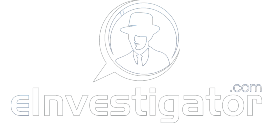
Ethics in Private Investigations
Private investigations are critical in uncovering the truth, solving crimes, and providing invaluable support to various legal and personal matters. However, as with any profession involving sensitive information and delicate situations, private investigators must adhere to a strict code of ethics and best practices. In this article, we will explore ethics in private investigations. Also, we’ll review the importance of ethical conduct and the best practices that govern the world of private investigations.
Ethics serve as the moral compass guiding private investigators throughout their work. Adherence to ethical principles ensures that investigations are conducted responsibly, fairly, and lawfully. Upholding ethical standards fosters trust between clients, investigators, and the public, bolstering the industry’s reputation.
Confidentiality
Maintaining strict confidentiality is one of the fundamental pillars of ethical conduct in private investigations. Investigators must respect and protect the privacy of their clients and the subjects of their investigations. Confidentiality ensures that sensitive information remains secure and only accessible to authorized individuals.
Impartiality
Private investigators must remain neutral and impartial in their approach to each case. They should not let personal biases or prejudices influence their investigations. Objectivity is crucial to providing accurate and unbiased results, allowing justice to prevail.
Legality
Operating within the confines of the law is paramount for private investigators. They must know the legal boundaries of their actions, such as permissible surveillance, evidence collection, and interviewing techniques. Engaging in illegal practices can jeopardize the investigation and lead to criminal charges against the investigator.
Informed Consent
Obtaining informed consent is essential when dealing with witnesses, informants, or subjects of the investigation. Private investigators must clearly explain the purpose and scope of their inquiries and obtain explicit consent from individuals before proceeding.
Best Practices in Private Investigations:
Apart from ethical considerations, certain best practices help private investigators carry out their duties effectively and professionally.
- Thorough Documentation – Maintaining detailed and accurate records of all investigative activities is essential. This documentation helps preserve the evidence chain, support conclusions, and provide transparent reporting to clients.
- Professionalism – Private investigators must always conduct themselves with the utmost professionalism. This includes dressing appropriately, communicating clearly and courteously, and respecting the boundaries of others.
- Continual Education – The field of private investigations is constantly evolving due to advancements in technology, law, and methodologies. Staying updated with the latest developments through continuous education and training ensures that investigators are well-equipped to handle complex cases.
Ethics in Private Investigations – Complaints and Concerns
If you have concerns about the conduct of a private investigator, it is best to contact the state licensing authority. Each state will have specific rules and regulations that govern investigator conduct. Usually, this is called the “Code of Ethics.” In addition, the state website will provide instructions explaining how to file a formal complaint.
In addition, you may want to contact any industry associations to which the investigator belongs. Although they may not allow you to submit a formal complaint (they will likely refer you to the state licensing authority), they will certainly want to be aware of your concerns.
Ethics and best practices are the backbone of private investigations, ensuring that the profession operates with integrity and professionalism. Adhering to ethical principles, such as confidentiality, impartiality, legality, and informed consent, establishes client trust and fosters industry credibility. Coupled with best practices like thorough documentation, professionalism, and continual education, private investigators can navigate the complexities of their work responsibly and effectively. By upholding these standards, private investigators contribute to the pursuit of truth and justice, significantly impacting society.
Recommended Reading
More Information
For more information on ethics in private investigations, check out this article in Pursuit Magazine.


